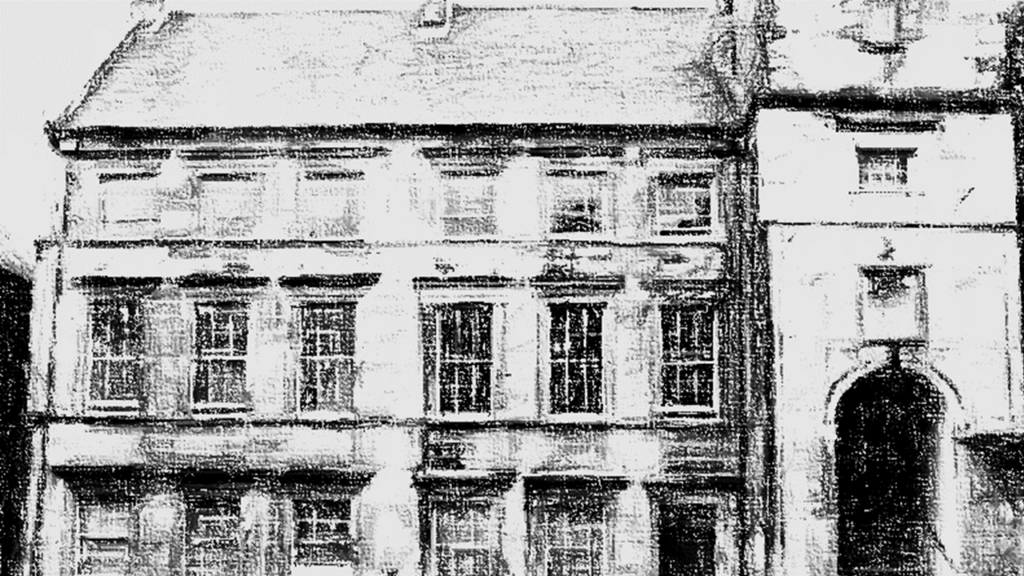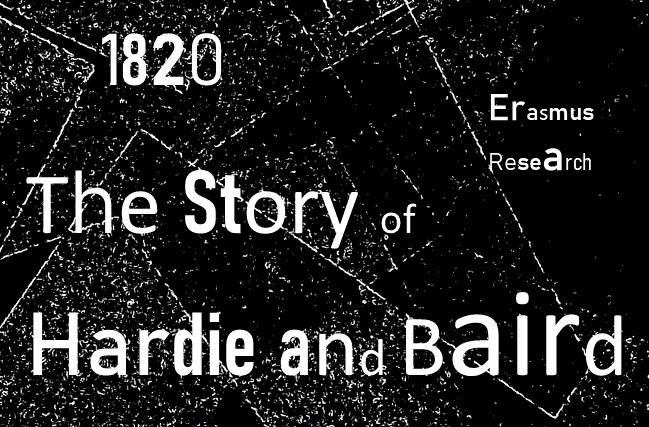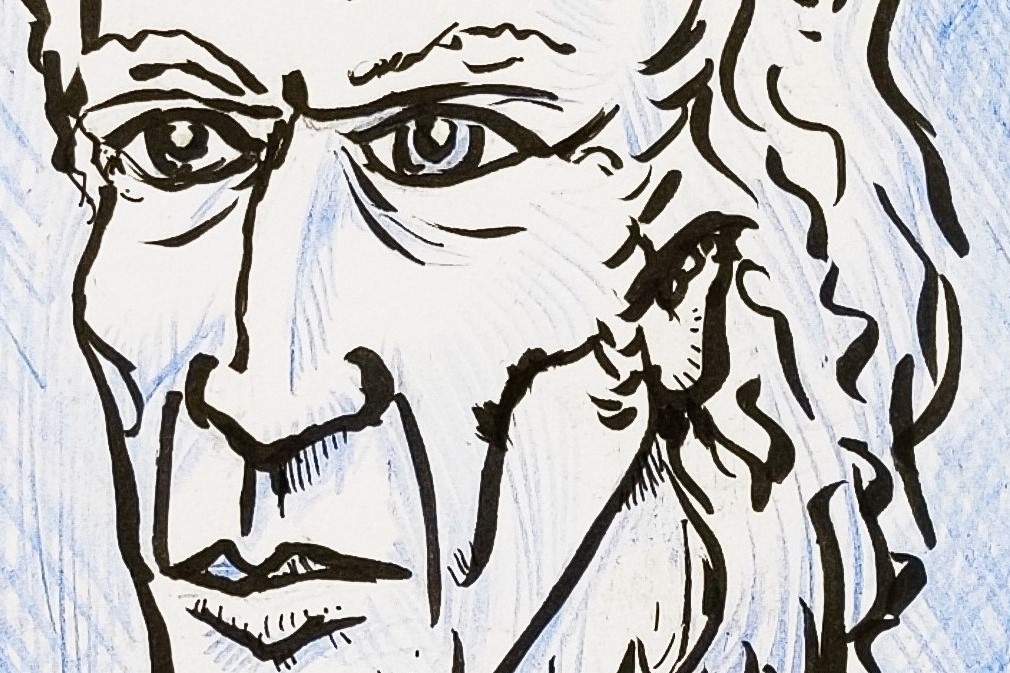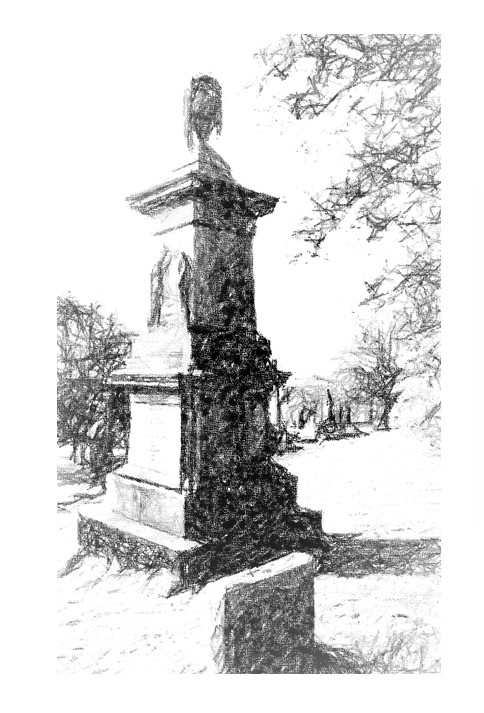
This is the second section of Chapter XI of the serialisation, the wording reproduced exactly as it appeared in the Stirling Sentinel, on Tuesday 23rd April 1889.
Gentlemen, I have said a great deal more than, I am afraid, you have had the patience to listen to, and than with more preparation, or a juster application of the evidence, I should have thought it necessary to trouble you with, I daresay, tedious as my address has been, many matters of importance have been omitted; but I cannot at this time tax my strength or your patience by any recapitulation of the evidence, or any glancing at the heads I should have submitted. I leave this prisoner and this case in your hands, confident that you will require no suggestion of mine to remember not merely the general deficiency of evidence to which I have alluded repeatedly, but that you cannot forget or be inattentive to the pleadings of that inward advocate, who not only does plead in the hearts of all humane, and just, and generous men, but whom the law recognises as a legal and mighty advocate, even in questions of strict legal construction, and in all questions, especially, where the actual truth of human natures, and the true state of the unsearchable heart, the ways and movements of which can never be completely disclosed to any human eye, are a part of the materials on which a verdict of condemnation or acquittal, in a case of life or death, must depend.
The facts are clear and indisputable – I have not disputed them – I trust I have not misrepresented them. The whole question is as to the purpose and intention from which these acts proceeded, and what they were intended to accomplish and fulfil, if they had been allowed to be persevered in. This is a question, therefore, as to motives and designs: the distinction of which, though difficult, juries are obliged to undertake and to which, if they proceed divested of party feelings, and with a merciful inclination towards the accused, I am satisfied they will not go wrong. I say, if along with a zeal for the conscientious discharge of their duty, they take with them those humane and merciful considerations, for the sake of which the establishment of trial by jury, and the committal of the life of a fellow-creature to the care of twelve simple and instructed men, has been so honoured and admired, the result must be satisfactory to all. To attend to these considerations, gentlemen, is not only your privilege, but your duty; and it is mainly because it is so, that trial by jury stands so high, and is canonised as the greatest of all blessings, and that without which the most perfect laws would deviate into hardness and cruelty.
Gentlemen, I cannot but think, that now that the alarm and immediate danger is over in the country we shall have a fairer chance than at an earlier period; you will look more to the merciful considerations that may induce you to be satisfied with the experience already made and to construe what is equivocal with this favourable leaning and bias towards mercy which the law expects and requires at your hands, and from the consciousness of having exercised which to your latest days, you will receive more pleasure than if you should act a Roman part, and decide on a nice point of evidence, to sacrifice these unfortunate individuals, who are already by a forfeiture of esteem and respect, to be considered as the victims of those deeper and more wicked designers whom the law has not yet overtaken. I think your feelings will be different if, in after times, you pass by their dwellings, and instead of meeting with the tearful countenances of their orphans and widows you there find the men themselves, reclaimed from the disaffection which they may have been tainted, redeemed from the peril on the brink of which they now stand, and enabled, by this reformation, to return to the exercise of an industry which is beginning to be better rewarded, and to bring up their children and their children’s children to admire those Courts and those juries which have administered the law in mercy and have acquitted, not indeed from a general implication of guilt, nor stamping on them any badge of or signal of approbation, but merely negativing the precise charge which is before you, and taking advantage of the flexible nature on which the conviction is demanded, refusing the conviction which might perhaps be reasonably granted, but which would be now far more wisely and generously and beneficially withheld.

After this eloquent peroration the Lord President asked Mr Jeffrey if he had any witnesses to call, to which the prisoner’s counsel replied that the witnesses he had were chiefly to character, and to some circumstances in the earlier history of Hardie, which did not now appear, from the way the evidence had been conducted by the Crown, to be material to the defence, and rather than prolong a trial which had occupied so much time, he would not call any witnesses. The Lord President said to Mr Jeffrey not to talk of time, but the latter adhered to his determination not to call anybody for the defence. The Solicitor-General then replied, this being a departure from the Scottish fashion of giving the counsel for the accused the last word with the jury. The Lord President immediately summed up, remarking that at that hour of the night (it must have been about midnight) he would endeavour to be as short as he could in the exposition of the law and the summing up of facts. His Lordship’s charge was entirely against the unfortunate prisoner. Referring to Mr Jeffrey’s appeal for mercy, he said that if juries were to lean to mercy in the face of evidence and to listen to appeals to their passions, such as they had heard that night, there would indeed be a revolution in our government, for no people under the sun could submit to have justice administered by such a tribunal.
It would go further than anything else to overthrow our happy constitution, if juries were turned into implements to gratify their own passions, or the appeals to their passions made by others. At the close of his address the Lord President seemed to cast it up as a reproach to Hardie that he had told the truth in his declarations, remarking that he was at liberty to make his own story as he pleased – to tell the truth or not the truth as he pleased, upon his examination, to make the fact exactly as he thought it most favourable to himself. But, alas! His declaration corroborated the evidence of the witnesses against him, and although it was unfortunate for the prisoner, and it might be said to be hard against him to use it, yet it was competent evidence.
The jury withdrew at five minutes before one o’clock, and returned into Court in twenty minutes, finding the prisoner guilty on the second and fourth counts of the indictment (levying war and compassing to levy war against the King in order to compel him to change his measures) and not guilty on the first and third counts.
The Court then adjourned till ten o’clock the next morning.
(to be continued)







